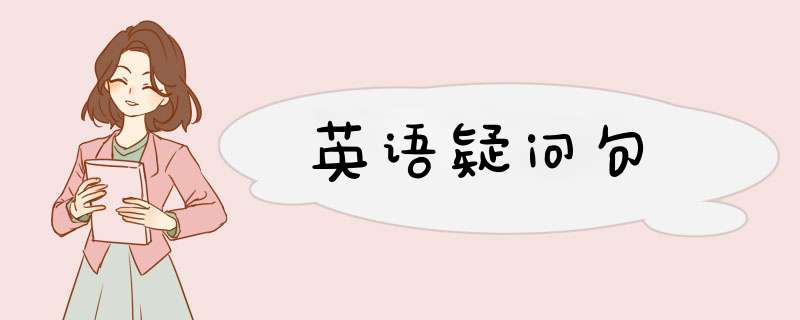
rhetorical question
修辞疑问句(Rhetorical Questions)是为了取得一种修辞上的效果而提出的,起到一个加强语气的陈述句作用,它实际上相当于陈述句,不需要回答。
①表示惊讶、感叹
Don’t you love your own parents
(你难道不爱自己的父母吗?)
Isn’t that a lovely park
(那公园真美!)
②表示愤怒
How dare you speak to me like that
(你居然跟我这样说话,太不像话了!)
Why don’t you shut up
(你给我闭嘴!)
③表示建议或委婉的批评、责备
Why don’t we have lunch in an eating place around here
Can’t you come a bit early next time
④表示邀请
Won’t you sit down and have a cup of tea
Why don’t you come in and have a look
用修辞性疑问句表达以上态度和感情时语气比一般陈述句要强烈。
来自:http://wwwstudyezcom/zikaoyingyu/fxzd/all/201310/437943htm
反问句不同于反意疑问句
一般说来反问句都是以动词或是助动词否定结构比方 don't,can't,isn't 开头,在追问原因的时候就把 why,w-h-y,why 放在句子的最前头,比方对话里的 Why don't you watch it with me就是一个例子反问句有几种用途,比方可以用来提出建议,对话里的 Why don't we go out to lunch today意思就等于 Let's go out to lunch today!也就是 "我们今天出去吃中饭吧!"
Don‘t I know this question
以否定形式开头,例如can’t,don‘t,won't等,其他的跟一般问句差不多?
Does he not know EnglishHow don't he know English
反意疑问句的规律[全]
1) 陈述部分的主语是I,疑问部分要用 aren't I
I'm as tall as your sister,aren't I
2) 陈述部分的谓语是wish,疑问部分要用may +主语。
I wish to have a word with you, may I
3) 陈述部分用 no, nothing, nobody, never, few, seldom, hardly, rarely, little等否定含义的词时,疑问部分用肯定含义。
The Swede made no answer, did he / she
Some plants never blown (开花), do they
4) 含有ought to 的反意疑问句,陈述部分是肯定的,疑问部分用shouldn't / oughtn't +主语。
He ought to know what to do, oughtn't he / shouldn't he
5) 陈述部分有have to +v (had to + v),疑问部分常用don't +主语(didn't +主语)。
We have to get there at eight tomorrow, don't we
6) 陈述部分的谓语是used to 时,疑问部分用didn't +主语或 usedn't +主语。
He used to take pictures there, didn't he / usedn't he
7) 陈述部分有had better + v 疑问句部分用hadn't you
You'd better read it by yourself, hadn't you
8) 陈述部分有would rather +v,疑问部分多用 wouldn't +主语。
He would rather read it ten times than recite it, wouldn't he
9) 陈述部分有You'd like to +v 疑问部分用wouldn't +主语。
You'd like to go with me, wouldn't you
10) 陈述部分有must 的疑问句,疑问部分根据实际情况而定。
He must be a doctor, isn't he
You must have studied English for three years, haven't you / didn't you
He must have finished it yesterday, didn't he
11) 感叹句中,疑问部分用be +主语。
What colours, aren't they
What a smell, isn't it
12) 陈述部分由neither… nor, either… or 连接的并列主语时,疑问部分根据其实际逻辑意义而定。
Neither you nor I am engineer, are we
13) 陈述部分主语是指示代词或不定代词everything, that, nothing, this, 疑问部分主语用it。
Everything is ready, isn't it
14) 陈述部分为主语从句或并列复合句,疑问部分有三种情况:
a 并列复合句疑问部分,谓语动词根据邻近从句的谓语而定。
Mr Smith had been to Beijing for several times, he should have been in China now, shouldn't he
b 带有定语从句,宾语从句的主从复合句,疑问部分谓语根据主句的谓语而定:
He is not the man who gave us a talk, is he
He said he wanted to visit Japan, didn't he
c 上述部分主句谓语是think, believe, expect, suppose, imagine等引导的定语从句,疑问部分与宾语从句相对应构成反意疑问句。
I don't think he is bright, is he
We believe she can do it better, can't she
15) 陈述部分主语是不定代词everybody, anyone, somebody, nobody, no one等,疑问部分常用复数they,有时也用单数he。
Everyone knows the answer, don't they (does he)
Nobody knows about it, do they (does he)
16) 带情态动词dare或need的反意疑问句,疑问部分常用 need (dare ) +主语。
We need not do it again, need we
He dare not say so, dare you
当dare, need 为实义动词时,疑问部分用助动词do + 主语。
She doesn't dare to go home alone, does she
17) 省去主语的祈使句的反意疑问句,疑问部分用will you。
Don't do that again, will you
Go with me, will you / won't you
注意: Let's 开头的祈使句,后用shall we
Let us 开头的祈使句,后用will you
Let's go and listen to the music, shall we
Let us wait for you in the reading-room, will you
18) 陈述部分是"there be"结构的,疑问部分用there省略主语代词。
There is something wrong with your watch, isn't there
There will not be any trouble, will there
19) 否定前缀不能视为否定词,其反意疑问句仍用否定形式。
It is impossible, isn't it
He is not unkind to his classmates, is he
20) must在表"推测"时,根据其推测的情况来确定反意疑问句。
He must be there now, isn't he
It must be going to rain tomorrow, won't it
最好不要哦 这种方法是不推荐的 用这样的语句比较好:There are several reasons,I think ,for this problem
我是学英语专业的,多多支持
有问题记得追问哦
反问句就是用疑问的句式,表达肯定的观点。反问句表面看来是疑问的形式,但实际上表达的是肯定的意思,答案就在问句之中。
反问句特点:
反问的形式比一般的陈述句语气更加强烈,更能引起人们的深思与反思。
反问句是修辞手法中的一种。
反问句结尾时正常情况下用问号,而有些特殊的句子也可以用感叹号。
反问句分为肯定反问句和否定反问句。肯定反问句表示否定的意思,否定反问句表示肯定的意思。
扩展资料
反问和设问的区别——
设问不表示肯定什么或否定什么,反问明确地表示肯定或否定的内容。
设问主要是提出问题,引起注意,启发思考;反问主要是加强语气,用确定的语气表明作者自己的思想。
设问是自问自答,有问有答,答在问外;反问寓答于问,有问无答。
1 -The sun doesn't rise in the east,does it
- Yes,it does
2 -The sun rises in the east,doesn't it
- Yes,it does
(不管他们怎麼问你,只要是从东方rises,你就说yes,-- - -)
3 - China is in Africa,isn't it
- No,it isn't
4 - China isn't in Africa,is it
- No,it isn't
(不管他们怎麼问你,只要不在Africa,你就说no,- - -- - )
你说的是反义问句么?举个例子好了。
Peter hasn't arrived yet ,has he彼得还没到,是吧?--------------No,he hasn't是的,还没到。
Your wife isn't in China now,is she你的妻子不在中国对吧?----------------But yes ,she is不,她在
欢迎分享,转载请注明来源:浪漫分享网

 微信扫一扫
微信扫一扫
 支付宝扫一扫
支付宝扫一扫
评论列表(0条)